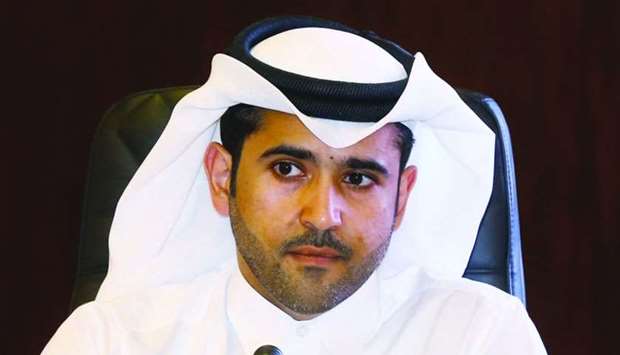Industries Qatar’s (IQ) investments abroad, if any, will be in petrochemicals or fertilisers according to a senior official.
Qatar Petroleum Privatised Companies Affairs manager Mohamed Jaber A. al-Sulaiti said petrochemicals or fertilisers may form the bulk of IQ’s investments abroad as part of the group’s plans to “selectively invest in capital investment projects.”
As the holding entity of Qatar Petrochemicals, Qatar Fertiliser, and Qatar Steel, IQ is currently looking at projects across the globe, including many efficiency projects in terms of facilities expansion and capacity increase across the group, al-Sulaiti said.
“Our international investments, if any, are going to be limited to either petrochemicals or fertilisers,” he told reporters on the sidelines of IQ’s annual general assembly, which was presided over by HE the Minister of State for Energy Affairs Saad bin Sherida al-Kaabi, who is also QP president and CEO.
In terms of steel production, al-Sulaiti said the Qatari demand “currently accounts for 60%” of the capacity of Qatar Steel, while the remainder of the capacity is exported in the region and in some Southeast Asian markets.
“When you look at Qatar Steel, this is where we are. We’re not expanding further in steel; our main focus is in petrochemicals and fertilisers,” he pointed out.
In its report, the board of directors said stable production, record sales volumes, modest improvement in product prices, and the group’s continued focus on cost optimisation and efficiency improvements were the main factors that helped the group achieve “commendable results.”
“Product prices across the group have shown modest improvement versus last year. Petrochemical prices, particularly the prices of fuel additives, have improved moderately on the backdrop of a notable increase in crude oil prices during most of 2018.
“Fertiliser prices have improved due to rising energy costs and a scarcity of supply in some markets. Steel prices have shown a modest increase on account of rising raw material and other related production costs,” the report said.
The board reported that the petrochemical segment reported a QR5.8bn revenue in 2018 – a QR0.3bn year-on-year increase or 5% over 2017 that was primarily driven by the improved sales volumes. Sales volumes in 2018 showed a slight growth as the group’s polyolefin facilities returned to normal production levels following the unplanned outage in the first quarter of 2017.
Fuel additive sales, on the other hand, remained relatively unchanged on last year, as fuel additive plants operated throughout the year with no shutdowns. The slight increase in the prices of the products has marginally contributed towards the growth in the revenue, the report continued.
Revenue in the fertiliser segment amounted to QR4.7bn in 2018 – a QR0.7bn increase of QR 0.7 billion or 19% versus 2017, which was primarily driven by a notable price increase in both ammonia and urea.
Fertiliser prices remain bullish in the second half of the year due to rising energy costs and tight supplies. The group was able to increase the production yield in the fertiliser facilities despite an increase in the unplanned outage days and maintained the sales volumes in the current year, it was reported.
The steel segment closed 2018 with revenue of QR5.8bn, a significant increase of QR1.2bn or 25% versus 2017. The increase was primarily due to the combined effect of increased sales volumes and selling prices subsequent to changing the group’s sales and marketing strategy, the board’s report added.


